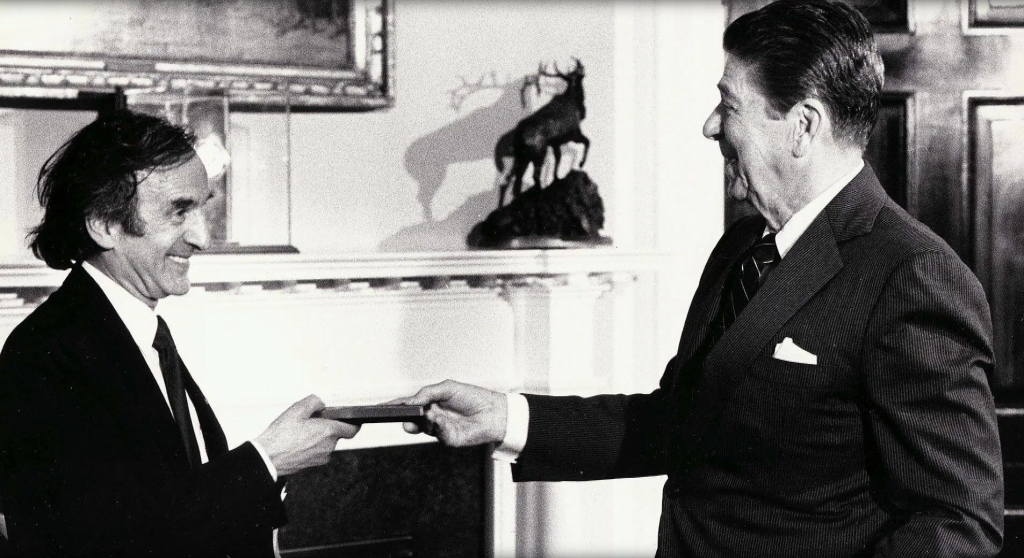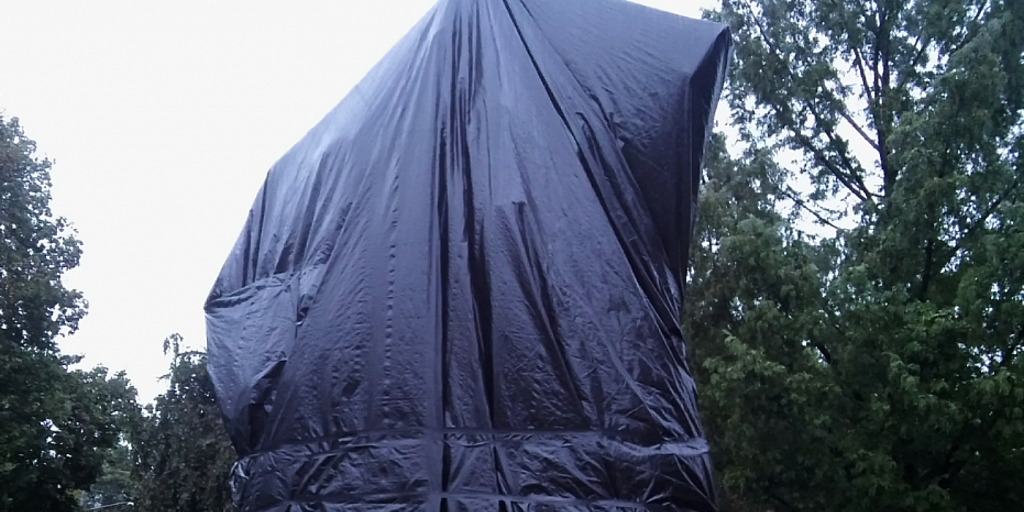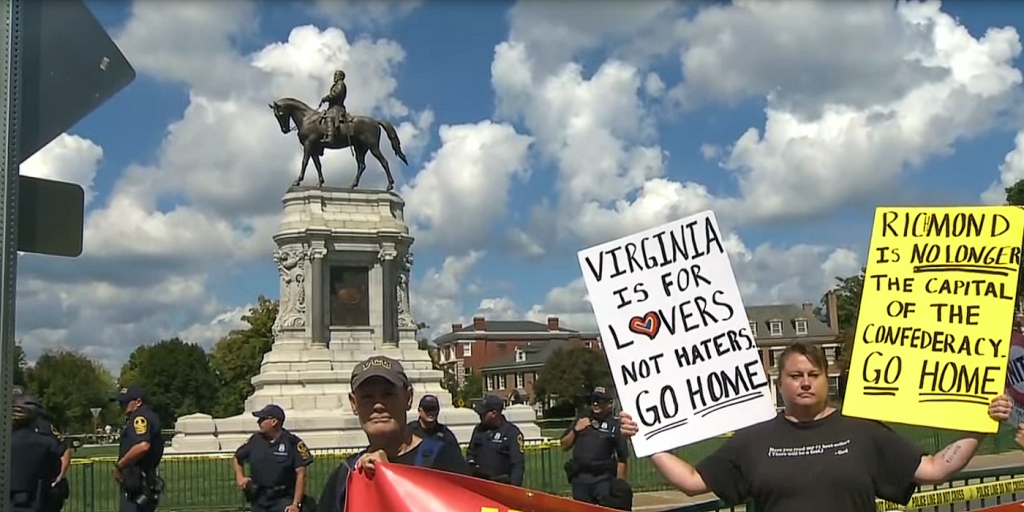I squandered the opportunity as a freshman in high school to hear Auschwitz survivor and Nobel Peace Prize laureate Elie Wiesel speak.
He had been in town for a conference at the University of Virginia, and through some strings my school had secured a visit the night before.
We all were required to read his Holocaust memoir Night in advance of the talk, although we were not required to actually attend the event.
Being 14 at the time—and regarding Wiesel’s harrowing account as indicative of the Bill Clinton-era political correctness sweeping the the nation’s educational institutions—I neither read the book nor attended the talk.
But I would go on to read it, probably in preparation for the test, and soon regretted my impetuous judgement.

When I became a high-school English teacher myself, I grew well-acquainted with Night—which had, in the intervening years, become a staple of most school curricula.
Less than an hour’s drive from Washington, DC, we visited the National Holocaust Museum as part of our study of the book.
And I will never forget the experience I had there with one boy, “Tyler,” in my very first year.
He was a challenging student, and I made him something of a project using the stick-and-carrot disciplinary approach.
Through detentions, parent conferences and the like, I had sensed a few breakthroughs, but my effort was hardly yielding the desired return on investment.
During our field trip, as I scrambled to coordinate chaperoned tours of the museum for a hundred rowdy sophomores, I noticed Tyler in the lobby, gazing with intrigue at a cluster of concentration-camp survivors who were there to help humanize the dusty annals of history.
“Tyler,” I said. “You know those are actual survivors of the Holocaust. I’m sure they would love it if you went over and asked them a question.”
Much to my delight, the usually reticent pupil did exactly that. A sense of something like pride and vindication welled up within me.
Afterward, he wandered off, undoubtedly inspired by their poignant account of the atrocity to seek out further resources—or so I figured.
Eventually, I caught back up with Tyler.
“Well, what did you say,” I queried.
“I asked them where the vending machines were,” he replied.
A Night and Day Comparison…
I am often reminded of my own teenage ignorance, and of my former student’s, when hearing demagogues invoke Nazism in their current political rhetoric.
It has become so overused that the phenomenon has its own term in the meme-driven Internet era: Godwin’s law.
Most recently, it has been deployed to describe everything from the authoritarian mask dictates in blue states (evoking, for some, the compulsory “Jewish badges” under German law), to the dispatching of federal peacekeeping forces during recent anti-Trump riots.
Politicians—including Rep. Alexandria Ocasio–Cortez, D-NY—also notoriously used concentration-camp comparisons last year to describe the conditions at detention centers where many U.S. immigrants await asylum hearings, often after turning themselves in to border authorities.

This, of course, begs a key distinction between the two situations: one detention was forced, and the other is voluntary.
While Jews fled Europe (if they were wise enough to heed early warnings), the opposite is true of America’s “concentration camps.”
The alleged victims in the latter case are asking to be put into them, with hopes that their temporary displacement will be the gateway to a better quality of life in the long term.
The Arbiters of Truth?
False equivalences like this are but one of the dangers posed by spuriously invoking Nazi rhetoric in our increasingly heated national dialogue.
Without offering the proper context or specificity for such comparisons, they will perpetuate a poor and misinformed understanding of the atrocities themselves.
The limited information taught about the Holocaust already has begun to winnow as its few remaining survivors succumb to the onward march of time.
A point will come in the not-so-distant future when our only firsthand accounts will be the written narratives they leave behind.
But like our national monuments—and certain “controversial” literary works—those may also be obliterated with one fell swoop in the ever-shifting Zeitgeist of the “moment.”

The concern over misinformation in the modern era was recently underscored by a report that a group of Holocaust survivors, the Conference on Jewish Material Claims Against Germany, had asked Facebook to remove pages and posts that promoted Holocaust denial.
As Facebook CEO Mark Zuckerberg readily admitted on Wednesday, however, during a House Judiciary hearing, forcing social-media sites—or any sort of private, for-profit entities—to become the arbiters of acceptable speech is, itself, deeply problematic and troubling.
In one sense, the only way to preserve freedom is allowing those who wish to make preposterous claims to do so, and then—as Rep. Jim Sensebrenner, R-Wisc., observed—allowing the other side, armed with facts and evidence, to thoroughly discredit them.
Without allowing the fictions to thrive unfettered in public forums, though, it is the facts that ultimately risk extinction.
The Turnstile of History
Another danger lies in the normalization of rhetoric that links any event one might disagree with to an occurrence of historical extremism and violence.
This holds true not only for specious comparisons to the Holocaust, but also in the current discussion of slavery, racism and lynchings.
With their casual use of these to justify in-kind acts of destruction, presumably well-intentioned activists pose a considerable risk of overplaying their hand.
It was during my teaching of To Kill a Mockingbird—a book now under fire for its use of the n-word by a white, Alabama-born author—that I cautioned students not to underestimate the pejorative slur’s extraordinary power.
I encouraged them to read it aloud and speak it in our academic discussions, not because it was OK to use—far from it—but to experience viscerally the ugliness and discomfort that it caused: to be confronted by it.
Sadly, in contemporary discussions of both the Holocaust and racism, the routine invocation of these horrors as a means of shutting down all debate—and quelling free thought by relegating it to the realm of “hate speech”—endangers our ability to recognize truly pernicious examples of hate or evil that may, once again, take root at any moment.

Just as the Jim Crow laws of the early 20th century arrived as a backlash to the overcorrections of the Reconstruction period, and the rise of Nazism arose from Germany’s post-World-War-I degradation, our own “long-overdue reckoning” on race, if not mitigated by common sense and compromise, may likewise come full-circle—or even recede to worse ground than that from which it started.
Historically speaking, the odds of a pendulum swing the other way are far greater than the odds that mob-imposed social justice will prevail in the long run.
When it does, those who have become inured to the race-baiting attacks against any form of dissent may fail to see the warning signs or to respond accordingly.
Some might call it the “cry wolf” or “Chicken Little” effect.
That same disinterested ennui that led my former student to conflate Dachau and Doritos will only become more pronounced as later generations develop more distance from the mistakes of the past.
I like to think that Tyler is now wiser with experience—an adult who looks back, as I do on my own youthful folly, with a resolve to grow from his mistakes.
As a nation and a world, though, we seem to be stuck in a holding pattern of rejecting the lessons that our history provides us, of overreacting to everything and learning nothing in the process.
Ben Sellers is an assistant editor at Headline USA.
Follow him on Parler: @Sellers and on YouTube: tinyurl.com/sellers-youtube.
